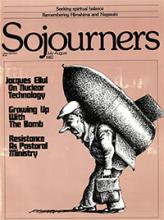To everything there is a season,
And a time for every purpose under heaven.
A time to be born and a time to die,
A time to plant and a time to pluck up what is planted.
The wise in every age have counseled with transcendent freedom: "This too shall pass." Sometimes that is a threatening word, a word challenging us to open our tightly clenched hands and let go, a word reminding us that only God is everlasting.
We who were born must die. Not since Eden has there been the possibility of life without death on this earth; death "belongs" to life, we say.
"This too shall pass" can be a threatening word which confronts us with the tentative, transient nature of our lives. It can also be a supremely liberating word calling us to remember that what today seems so dreadful and unending will, with time, be healed, transformed, or forgotten.
Death will come, but death has not the last word. Each of us must die, civilizations decay, and the earth hardens against planting in winter; but children are born, new civilizations arise, and the spring rains and sun soften the earth to receive the seed once again.
"For everything there is a season, and a time for every purpose under heaven." The poet's wisdom trusts the created rhythm, a rhythm that moves us inexorably back and forth between the season of embracing and the season of letting go.
There is something deeply consoling about this rhythm when we discover the grace to move with it. For one thing, we realize that we live as people of past, present, and future; as people of remembrance, action, and hope. Cut off from any of these three we are cut off from the flow of times and seasons.
Read the Full Article

